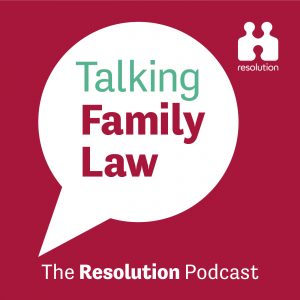Talking Family Law – the Resolution Podcast
Listen to Resolution’s podcast, with guest experts discussing topical issues in Family Law, with our hosts Simon Blain and Anita Mehta.
 Join Resolution’s family law experts in our Podcast series
Join Resolution’s family law experts in our Podcast series
Each episode welcomes guest experts sharing their take on topical family law issues. We cover the whole spectrum of family law, from abduction, surrogacy, and public law to financial remedy.
We invite our guests to take a deep-dive into a different topic each month. On each episode we try and cover what is the current state of the law, or the leading authority, practical tips (if you are running one of these cases), and thoughts for reform.
Do expect some lively debates, and personal insights. We try to find known experts in their field and ask them the things that we all want to know. If you are an expert on a particular topic, either regionally or nationally, we would like to hear from you, so do please get in touch.
We were thrilled to be shortlisted for the Family Law Commentator of the Year award at the 2023 LexisNexis Awards.

Listen on the go:
DISCLAIMER: Nothing in any of the episodes is supposed to constitute legal advice. We invite our guests to express personal views by way of legal commentary, this may differ from how they put their client’s case.
No liability is accepted for any error or omission about the law in respect of a particular topic.